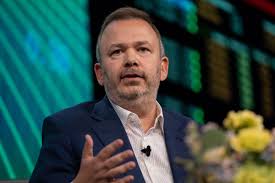Saba Capital Management, the hedge fund run by famed credit trader Boaz Weinstein, has been quietly selling credit default swaps (CDS) on America’s largest tech companies, as Wall Street grows increasingly uneasy about the debt-fuelled AI spending boom, a source directly familiar with the trades told Reuters.
According to the source, Saba has sold CDS protection to major banks on Microsoft, Meta, Amazon, Alphabet, and Oracle—a rare move that suggests lenders are actively hedging against potential stress in Big Tech balance sheets for the first time in this AI cycle.
Related: How Big Tech Created the 2025 AI Boom on Debt
Banks want protection as AI capex goes vertical
The shift comes as hyperscalers have issued record levels of investment-grade debt to fund multi-billion-dollar artificial intelligence infrastructure:
- Meta raised $30B of debt in October.
- Oracle issued $18B in September.
- Alphabet has tapped markets repeatedly this year.
According to Bank of America, September and October combined saw over double the sector’s typical annual IG supply.
Banks holding this debt are looking for insurance. CDS prices rise as default risk increases, and recent trading shows that Big Tech spreads—while still low compared to other sectors—have surged to multi-year highs.
- Oracle CDS: above 105 bps, highest in two years
- Alphabet & Amazon: around 38 bps
- Microsoft: ~34 bps
Data from S&P Global shows that Meta’s CDS spread has jumped sharply since late October when it first began trading.
“This is the first time Saba has sold protection on several of these names,” the source said. “It’s also the first time banks have asked for this specific hedge.”

AI bubble concerns creeping into credit markets
The CDS demand aligns with a growing wave of skepticism about the AI boom. Recent weeks have seen:
- A sharp sell-off in AI stocks
- Warnings about unsustainable AI capex
- Concerns that Big Tech’s bond supply is overwhelming demand
Goldman Sachs and Deutsche Bank both flagged increased hedging activity last week, with Goldman noting heavier client flow in tech downside protection.
Deutsche Bank strategist Jim Reid said the sector’s CDS market shows investors preparing for “a surge in AI bond supply and the possibility of a bubble unwind.”
Risks remain low, but rising
Despite the spike in CDS spreads, Big Tech still trades tighter than many investment-grade industrials. Wall Street analysts stress that:
- Hyperscalers remain cash-rich,
- Highly profitable,
- And maintain exceptionally strong credit profiles.
But the appearance of CDS hedging on the sector at all is unusual — and telling.
Bank of America strategist Michael Hartnett put it bluntly in his Friday note:
“Best short is AI hyperscaler corporate bonds.”
What it means
The move doesn’t signal imminent distress. Instead, it suggests credit markets are starting to price the possibility that:
- AI investment cycles may have overshot,
- Corporate leverage is rising faster than revenue growth,
- And any slowdown in AI or cloud demand could ripple through both equity and bond markets.
For now, default risks remain low. But the fact that banks are buying protection on the largest, most liquid, most profitable companies in the world is a notable psychological shift, and the latest sign that the market is reassessing just how far the AI boom can stretch without breaking.
Disclosure: This article does not represent investment advice. The content and materials featured on this page are for educational purposes only.










